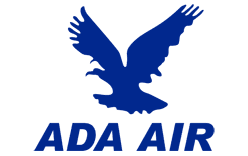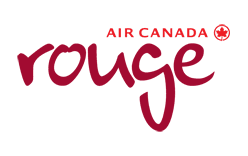In today’s fast-paced global economy, business air travel remains essential for companies aiming to expand, connect, and stay competitive. From sealing deals in person to attending global conferences and meetings, air travel is a critical enabler of corporate growth. However, business travelers have unique needs compared to leisure travelers. Time efficiency, comfort, flexibility, and reliability are crucial.
This guide explores the key elements of business air travel, how to make it more efficient, and why investing in the right travel strategy benefits both companies and employees.
✈️ Why Business Air Travel Still Matters
Despite the rise of video conferencing, in-person meetings continue to be valuable in building trust, finalizing negotiations, and forging strong relationships. Business air travel enables:
- Quick access to international markets
- Face-to-face collaboration with partners and clients
- Attendance at industry events and expos
- Site visits, inspections, and operational oversight
- Last-minute or urgent travel needs
Face-to-face interactions often lead to stronger business outcomes, making corporate travel a worthwhile investment.
💼 Business Travel Classes: Choosing the Right One
When booking business flights, selecting the appropriate travel class is essential. The most common options include:
1. Business Class
- Extra legroom and reclining seats
- Priority boarding and check-in
- Airport lounge access
- Gourmet meals and premium service
- In-flight Wi-Fi and power outlets
2. Premium Economy
- More affordable than business class
- Slightly more space and comfort than economy
- Often includes better food and faster check-in
3. First Class (for C-level executives)
- Ultimate comfort and exclusivity
- Fully lie-flat beds, privacy pods
- Personalized service
4. Economy (short-haul or budget trips)
- Cost-effective for junior staff or short meetings
- May require travel flexibility
📅 How to Plan Business Trips Efficiently
✅ Use a Corporate Travel Agency
Business travel management companies help streamline bookings, negotiate lower rates, and provide 24/7 support.
✅ Book Early (but Flexibly)
Advance booking ensures availability and lower prices, but flexible tickets allow for last-minute changes—critical in business travel.
✅ Use Travel Management Software
Platforms like SAP Concur, TravelPerk, or Egencia allow businesses to centralize travel policies, expense tracking, and employee itineraries.
🛬 Best Airlines for Business Travelers
Airlines that cater well to business travelers often include:
- Delta Air Lines – Reliable for domestic US and international routes
- Emirates – Luxurious cabins, ideal for Middle East/Asia trips
- Singapore Airlines – High service quality for Asia-Pacific travel
- British Airways – Great European connectivity
- Lufthansa – Strong across Europe and North America
- United Airlines – Extensive US and international routes
Always compare loyalty programs, punctuality, and route networks before selecting.
💳 Benefits of Airline Loyalty Programs for Businesses
Corporate frequent flyer programs help companies earn benefits while employees travel. These include:
- Free upgrades
- Discounted lounge access
- Priority services
- Travel insurance
- Mileage rewards for future trips or company use
Programs like Delta SkyBonus, Lufthansa PartnerPlusBenefit, or United PerksPlus cater specifically to businesses.
🕒 Productivity Onboard: Turning Flight Time Into Work Time
Modern business travelers value productivity during flights. Features that support this include:
- In-flight Wi-Fi
- Noise-canceling headphones
- USB and power ports at every seat
- Quiet cabin zones for working or resting
- Ergonomic seating in premium classes
Tip: Bring a tablet, noise-canceling headset, and offline-access work materials.
🧳 Business Travel Packing Tips
Efficiency is key. Here’s what smart travelers always carry:
- Lightweight carry-on with wheels
- Noise-canceling headphones
- Business cards and travel documents
- Reusable water bottle
- Travel-sized toiletries
- Device chargers and adapters
- Comfortable blazer or jacket
Pro tip: Use packing cubes and a checklist to avoid delays or forgotten essentials.
🧠 Travel Policies That Work
A clear corporate travel policy ensures budget control and employee satisfaction. It should include:
- Booking procedures
- Class of service allowed per role
- Approved hotels and airlines
- Daily allowances or per diems
- Expense reporting methods
- Emergency contacts and travel insurance
A well-defined policy reduces confusion and boosts compliance.
🛡️ Safety, Health & Insurance
Modern business travel must consider health and safety risks. Companies should:
- Offer health/travel insurance
- Register travelers with consulates when necessary
- Provide 24/7 assistance via a travel management partner
- Advise on vaccination, visa, and local law requirements
Since COVID-19, sanitation and cancellation flexibility are even more critical.
🌍 Sustainability in Business Air Travel
Corporate social responsibility includes environmentally conscious travel. Consider:
- Booking airlines with sustainable fuel programs
- Offsetting carbon footprints via verified providers
- Reducing unnecessary trips
- Choosing direct flights when possible (less fuel burn)
Several airlines now provide carbon-neutral options for businesses.
✈️ Final Thoughts: The Future of Business Air Travel
Business air travel is evolving. While technology handles routine communication, personal presence remains unmatched for strategic goals. Companies that embrace smart booking tools, prioritize traveler well-being, and adopt sustainable practices will get the most value from every business mile flown.
Whether it’s your first corporate trip or your hundredth, planning with precision and care makes business travel not just efficient—but also a rewarding part of your professional journey.







